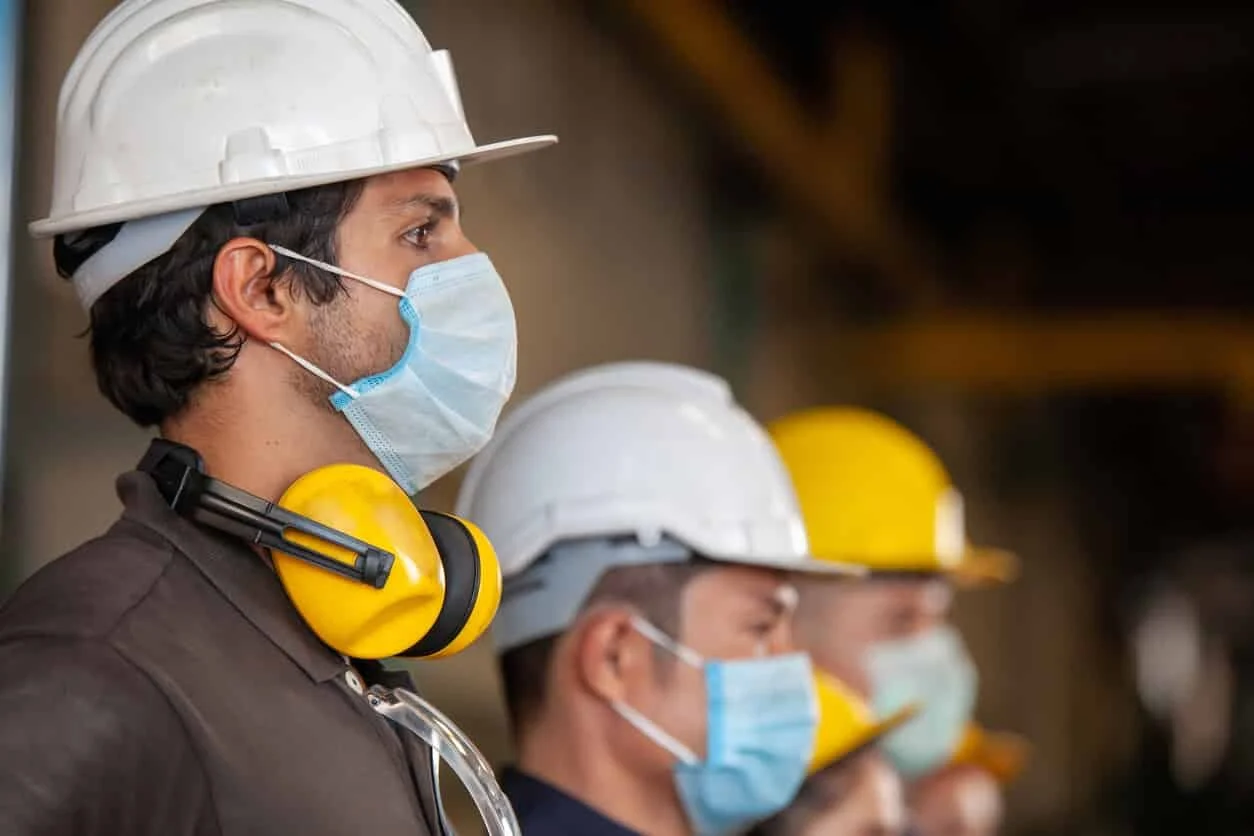May is mental health awareness month. Yet the topic of mental health in construction isn’t discussed in great detail. This is despite the fact that the construction industry has the highest suicide rate – 53.2 suicides per 100,000 workers – according to the Centers for Disease Control. According to a 2020 study issued by Construction Industry Rehabilitation Plan (CIRP), 83% of construction workers have experienced a mental health issue.
Connect CRE asked Ismet Dalipi, Unispace Regional Safety Manager for North America about the importance of construction workers and mental health, the consequences of ignoring this issue, and possible solutions.
Connect CRE: Why are mental health issues so prevalent among construction workers?
Ismet Dalipi: The construction industry is notoriously unforgiving. While steady pay is a given during prosperous times, a sudden setback can result in abrupt job loss and financial insecurity. The demanding work schedule, both physically and mentally, requires significant sacrifice in terms of time away from loved ones
In this industry, men have traditionally held the majority of positions, and for men, exhibiting emotions is often viewed as a sign of weakness. The pressure to maintain a stoic exterior while inwardly craving emotional release can be overwhelming.
Historically, mental health was a taboo topic that went unacknowledged in the construction world. In recent years, awareness of mental health topics is on the rise in the industry, as stakeholders cultivate their understanding via news reports, social media, initiatives by the Occupational Safety and Health Administration (OSHA), and campaigns centered around suicide prevention. Overall, the focus is not solely on ensuring physical safety on job sites, but on addressing mental health as well.
Connect CRE: What are the consequences of this issue? superiors? How dangerous is a non-treated mental health issue among construction workers?
Ismet Dalipi: The impact of mental health struggles can manifest in numerous ways, from self-harm and aggression to depression, anxiety and stress. These challenges can reverberate beyond one’s inner circle and affect both colleagues and coworkers.
The majority of construction workers never express their feelings or seek help. In fact, nearly 60% of construction workers reported struggling with mental health but only a third said they would communicate this to their employers.
The effects of untreated mental health concerns can be far-reaching, leading to decreased productivity and even job loss. In more severe cases, these struggles can result in harm to oneself or others on a job site.
Connect CRE: Why are construction workers reluctant to seek help?
Ismet Dalipi: In the construction industry, cultural norms that discourage showing emotions have created a barrier for workers seeking help. Many fear being mocked, bullied, or ostracized for speaking up about their mental health struggles.
However, there is hope for change as the industry evolves. As older generations retire and leave the workforce, a new generation of workers is more in tune with their emotions and more receptive to growth.
The good news is that more and more companies, both large and small, are recognizing the importance of addressing this issue and are developing outreach programs to support their workers. By breaking down the stigma surrounding mental health, the construction industry can create a safer and healthier work environment for all workers.
Connect CRE: What advice can you give to developers and construction workers to help with this issue?
Ismet Dalipi: Better communication and programs need to be developed that assure workers that it is okay to talk about and seek support with their mental health. It’s crucial to create a safe and supportive environment where team members can openly discuss their struggles without fear of judgment or ridicule.
By developing a robust safety program that reflects a genuine commitment to mental health, you can demonstrate to workers that their well-being is a top priority and they are not alone. It’s also essential to promote mental health awareness and provide access to resources such as employee assistance programs, counseling services and support groups
Encouraging a culture of wellness, including allowing space for employees to discuss their personal lives, take breaks, recognizing those who go above and beyond, and promoting self-care practices, can also make a significant difference in reducing stigma and addressing mental health concerns. Additionally, providing speakers and signage to encourage employees to seek help if they need it can be helpful.
It’s crucial for construction companies and workers to prioritize addressing these issues and encourage seeking treatment to prevent potential harm to oneself and those around them.

















